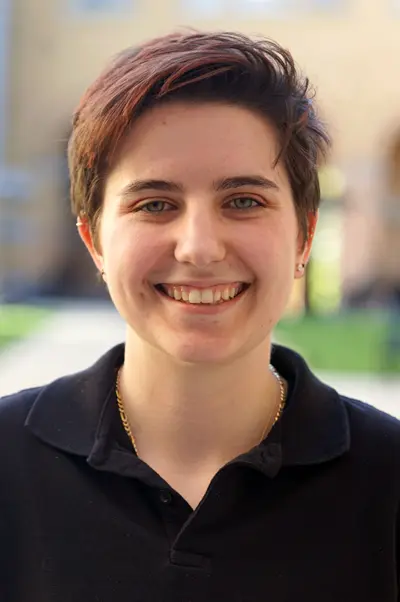While it is coursework that ultimately defines an engineering degree, there are number of opportunities to gain experience by putting the theory learned into practice, such as projects, clubs, competitions, work and research experiences. Many of these different forms of experiential learning in engineering, which are both fun and rewarding, are highlighted below.
For information on university-wide opportunities, visit Career Connected Experience.
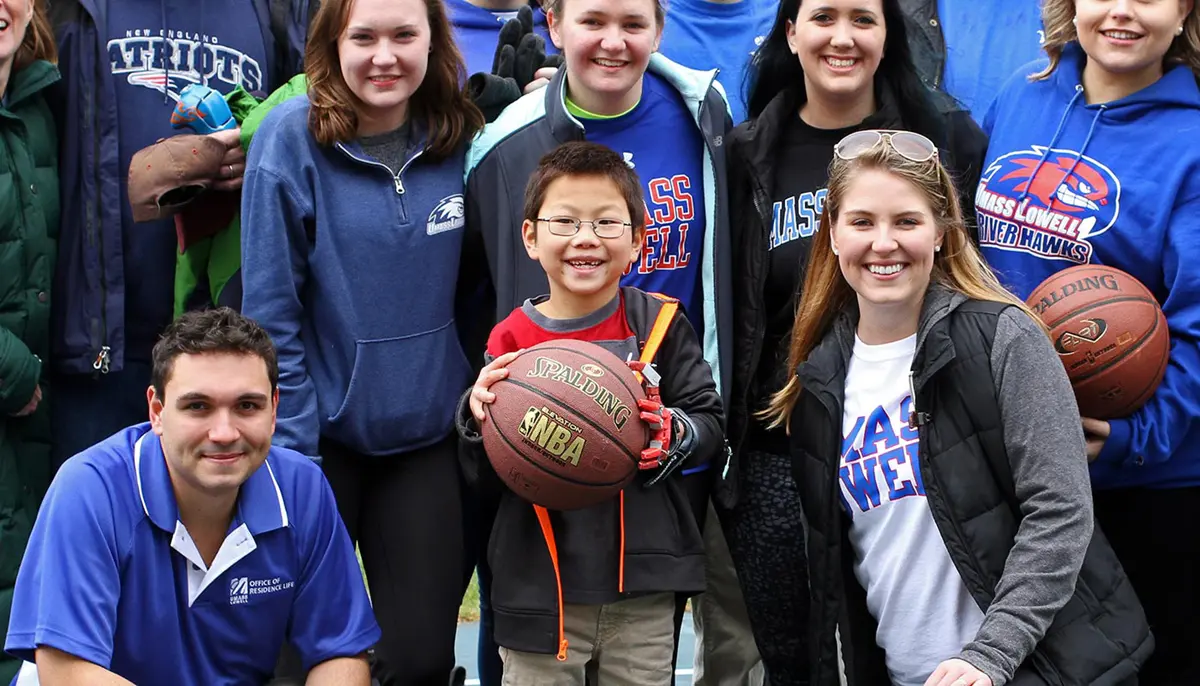
Assistive Technology
The Assistive Technology Program provides engineering students with interesting and challenging problems from our community partners and allows students to solve them through the development of appropriate technologies.
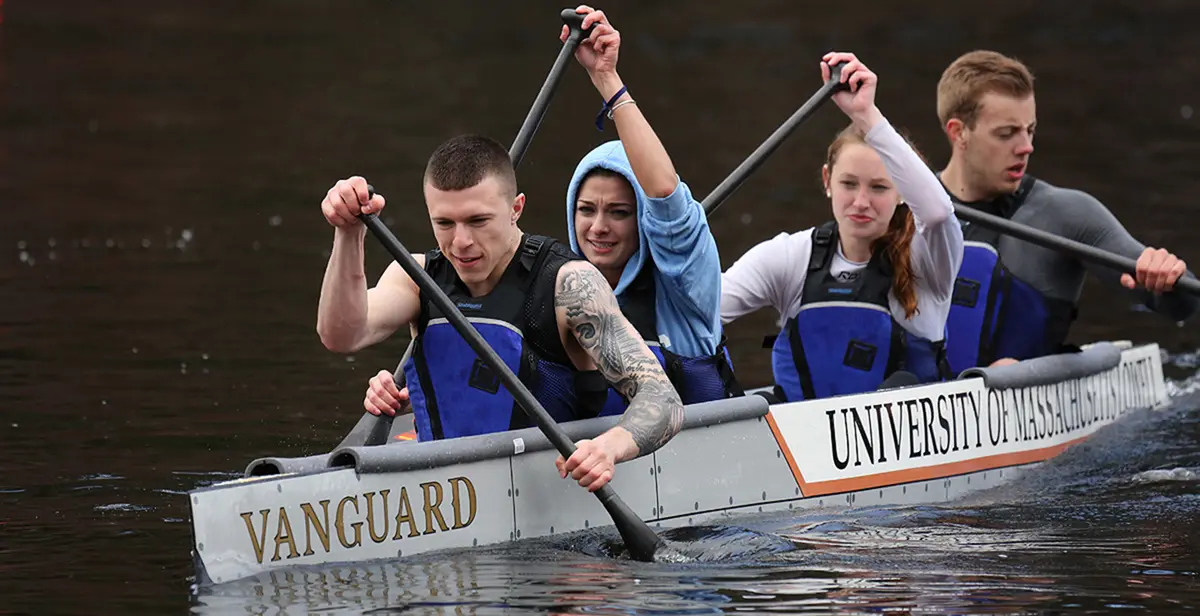
Clubs, Societies & Teams
Nearly every major or discipline has an associated club or society which meets on a regular basis for professional development or social affairs. A number of teams that compete annually include:
- Concrete Canoe Team: Design, build and race a concrete canoe against other schools in the Northeast.
- Design-Build-Fly Team: Design and build a remote-controlled plane according and put it through a series of competitive tests against schools across the globe.
Visit the Clubs & Organizations page to learn more.
- eNABLE Lowell: UMass Lowell students join together across majors to design, build and donate prosthetic devices to children. You can nearly always find a team member working in our Lin Makerspace.
- River Hawk Racing: The student SAE (Society of Automotive Engineers) team builds and races a Formula One style car each year.

- Rocketry Club: Build and fly rockets, usually in nearby Amesbury, Massachusetts.
- Steel Bridge: Design and build a steel bridge within prescribed parameters to take the maximum load and compete against other schools in the Northeast.

DifferenceMaker:
This campus-wide program engages students in creative problem solving, innovation and entrepreneurship. Seminars and workshops are held throughout the year, culminating in the Idea Challenge, which gives out $50,000 for category winners to further their ideas into products and even companies. Previous winners include prosthetic developers Nonspec and eNable Lowell.
Visit the DifferenceMaker website to learn more.
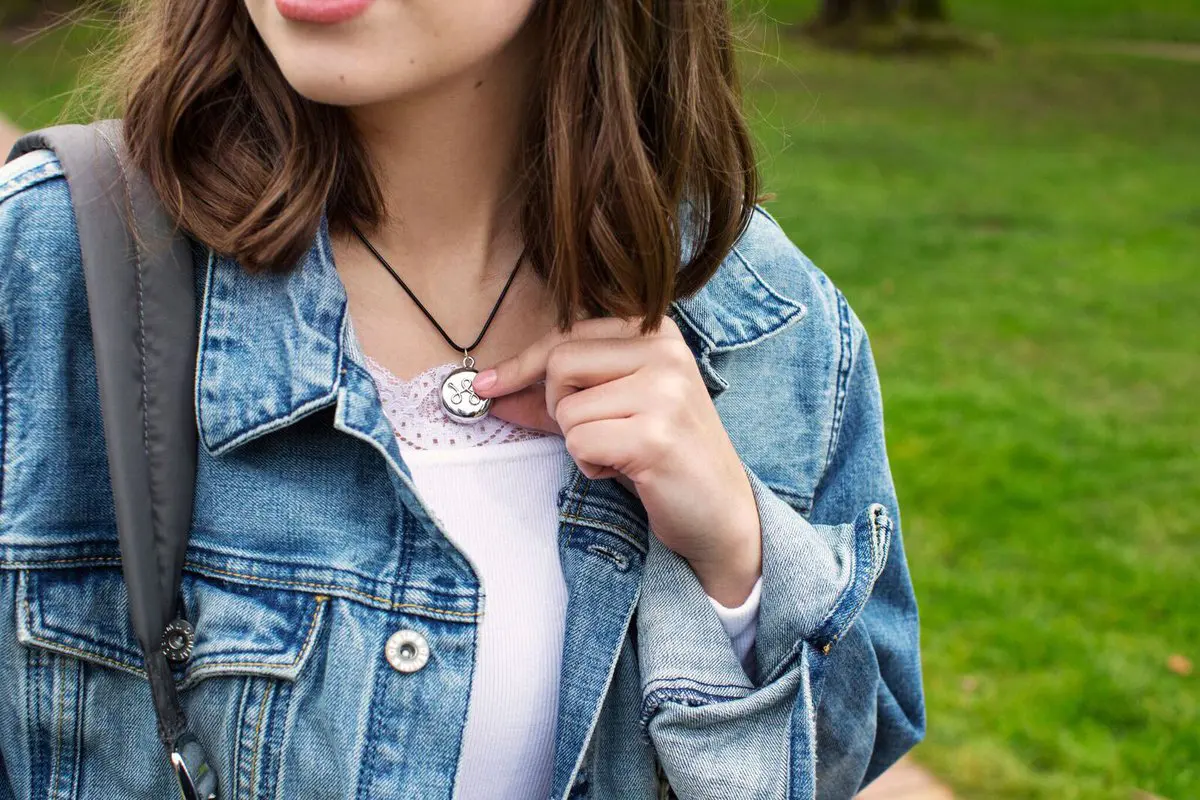 Image by InvisaWear
Image by InvisaWear
InvisaWear jewelry, like this necklace, is designed to be discreet but effective in alerting loved ones and police is there's a problem.
Engineering Prototyping Competition:
Have a product idea? Build a prototype and compete for prize money to further develop your product. Over 25 teams are competing in this year’s event which will shell-out $7000 in prize money. Previous winners include companies such as Invisawear and TopaCan. Learn more about the Engineering Prototyping Competition.
Entrepreneurial Senior Design:
Every engineering student is required to complete a culminating senior design project. In this version, engineering and business students form teams to chase an entrepreneurial idea. In addition to the design and prototyping, the team works on a business and marketing plan. Learn more about the Entrepreneurship Engineering Capstone Proposal in the online Catalog.
Industrial Senior Design:
In this senior design course industry partners provide a problem which a team of students solve over the course of their senior year. In addition to putting their studies to practice, the students develop communication skills and learn about the workings of industry. Sponsors have included Analog Devices, BAE Systems, New Balance, Raytheon, and UTC Aerospace Systems, among other companies. Learn more about the Engineering Capstone Design Project in the online Catalog.
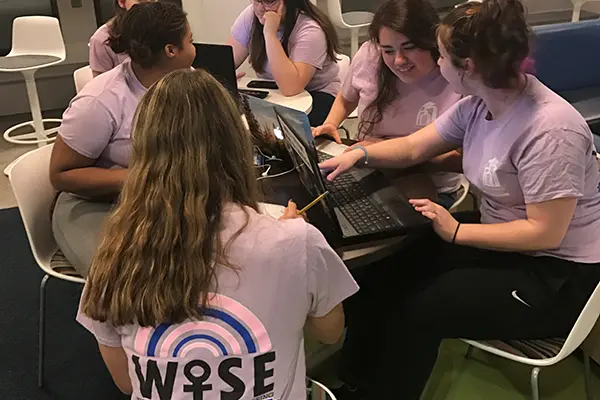 Image by David Benavides
Image by David Benavides
Living Learning Communities (LLC):
By living and participating in an LLC, students are provided with meaningful opportunities to link academic and co-curricular components of their college experience. The College sponsors the Developing Leaders in Engineering (DLE) and Women in Science and Engineering (WISE) LLCs, but there are a number of options available for all interests. Learn more about UMass Lowell's Living Learning Communities.

Professional Co-op:
Students in any major may apply to the professional co-op program which prepares students for six-month or summer work experiences in a variety of companies. Learn more about UMass Lowell's Professional Co-op program.

Mechanical engineering students working with their prototype biomass shredder in Haiti.
Research Experiences:
Undergraduates interested in pursuing research are encouraged to consult faculty, often affiliated with centers, laboratories or institutes, for potential opportunities. Visit our Undergraduate Research Opportunities & Collaborations (UROC) website to learn more.
Service-Learning:
SLICE (Service Learning in the College of Engineering) engages our students and faculty with the community.
Activities include performing service projects with community partners, from Lowell to Haiti, and developing STEM learning modules which are delivered in local schools.
UTeach:
This program prepares science and engineering undergraduate students to become licensed middle school or high school teachers. The goal is to attract a wide range of bright science and engineering undergraduate students to the STEM teaching minor to give them the experience and mentoring needed to become confident, effective, and engaging educators. Students spend time teaching in the classroom from the very first class.
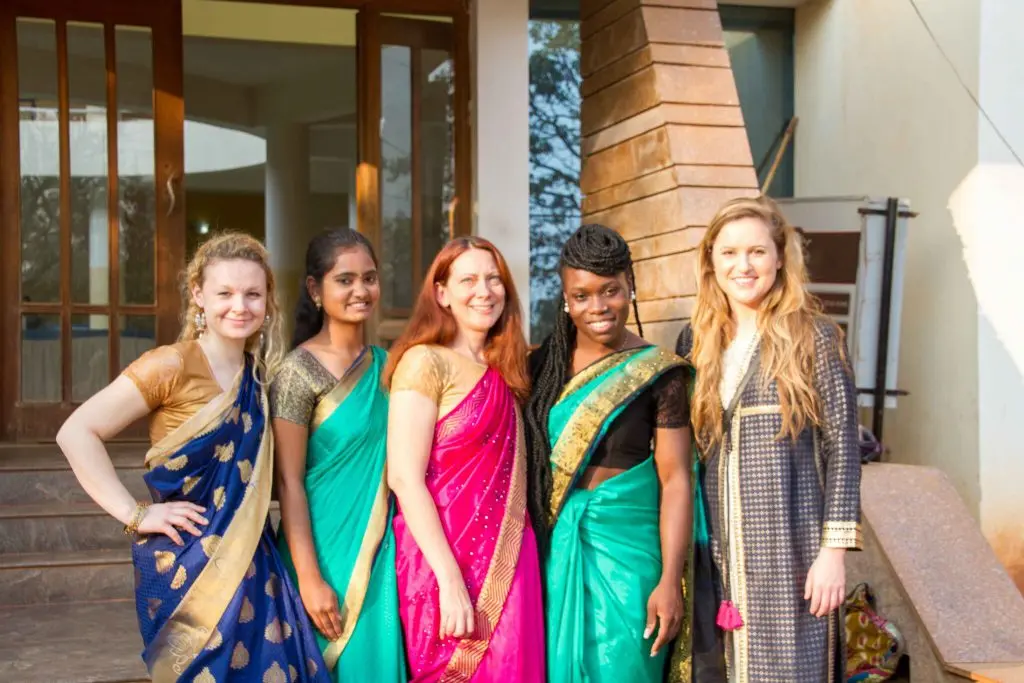 Image by Nana Younge
Image by Nana Younge
Study Abroad:
UMass Lowell provides literally hundreds of options to study abroad. Engineering students can find tailored programs in the Czech Republic, Germany, India and Taiwan. Visit the International Experiences & Study Abroad website to learn more.
Research Experience for Undergraduates: Inclusion and Innovation in Medical Devices:
Students will participate in research, professional development and social activities and will have the opportunity to network with medical devices companies. This organized, cohesive, and vibrant program will make their experience go way beyond what could be provided by a typical research experience in a single lab. Visit the Research Experience for Undergraduates: Inclusion and Innovation in Medical Devices webspage to learn all about this program.





